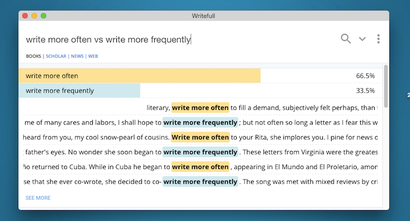
In July, its Chrome notification center was pushed out to Windows and Chrome OS users, allowing for alerts and pop-ups outside the browser window. Google began promoting a handful of Chrome Apps ( then called Packaged Apps) in May. "There are still reasons why a developer would build a native app over a Chrome App today, but we're working to tackle each one," Rakowski says. It's a play that's been months in the making. By way of the Chrome browser, the company is essentially putting its own app ecosystem right on top of Windows and OS X. "Users may not even fully grasp what it means to be a Chrome App, and that's okay."Ĭhrome Apps amount to a Trojan horse for Google. Perhaps the best of the bunch is Pocket, which makes links you save while browsing the web available offline. Task-management app Wunderlist is slick and works outside of the browser window. Pixlr Touch Up offers basic photo editing that wasn't native on Chrome before.
While big-name developers aren't on board yet, the selection does at least show the potential for Chrome to grow into a legitimate platform. "We want to make sure there are no reasons it’s not the right product for everyone."Īt launch, Google says that more than 50 Chrome Apps are available in the Chrome Web Store. "We want to make Chrome OS a full-fledged operating system," says Brian Rakowski, a Chrome VP. Chrome Apps are designed to help turn Chrome OS into a truly viable desktop OS instead of a de-facto second computer. The Chrome team tells The Verge that its rather ambitious goal is for Chrome Apps to be so polished and so powerful that users can't decipher between this new breed of apps and regular old Windows apps.
#Writefull chrome apps mac
Mac users will have to wait another six weeks before their version of Chrome will be updated. Chrome Apps are, for now, only available through Chrome on Windows or Chrome OS on a Chromebook.
#Writefull chrome apps Bluetooth
They can also access your computer's GPU, storage, camera, ports, and Bluetooth connection. A new class of appsThey can exist outside of your browser window as distinct apps, work offline, and sync across devices and operating systems.
#Writefull chrome apps code
They're built using web technologies, but also with Chrome-specific code that means they won't be able to run on other web browsers - they're truly Chrome apps. The new apps look and behave much like the native apps you find on Windows and OS X. They comprise Google's bid to elevate the browser into a true app platform - one that it thinks could one day be a legitimate rival to Windows, OS X, and someday iOS and even Android. Chrome Apps, however, are different than what's been offered before. Chrome has been serving up web apps since 2010 when the Chrome Web Store opened up alongside the launch of the Chrome OS.

Don't feel bad if you're confused by the name. Today, on Chrome's fifth birthday, Google is announcing the rollout of what it's calling Chrome Apps.


 0 kommentar(er)
0 kommentar(er)
